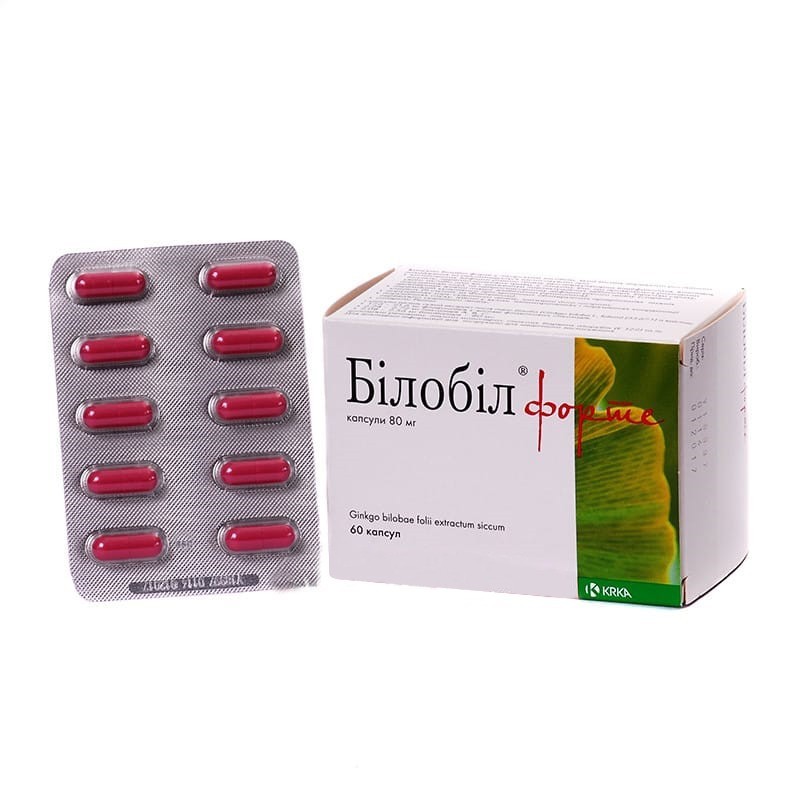



 Secure and encrypted payment processing
Secure and encrypted payment processing We ship to over 40 countries including the USA, UK, Europe, Australia and Japan
We ship to over 40 countries including the USA, UK, Europe, Australia and Japan Guaranteed refund or reship if you haven't received your order
Guaranteed refund or reship if you haven't received your ordera herbal preparation normalizes the metabolism in cells, the rheological properties of blood and microcirculation.
It improves cerebral circulation and provides the brain with oxygen and glucose, prevents the aggregation of red blood cells, and inhibits platelet activation factor. It exhibits a dose-dependent regulatory effect on the vascular system, stimulates the production of an endothelium-dependent relaxing factor (nitric oxide - NO), expands small arteries, increases venous tone, and thereby regulates blood vessels. It reduces the permeability of the vascular wall (decongestant effect both at the level of the brain and at the periphery). It has an antithrombotic effect (due to stabilization of platelet and red blood cell membranes, effects on prostaglandin synthesis, decrease in the effect of biologically active substances and platelet-activating factor). Prevents the formation of free radicals and lipid peroxidation of cell membranes. It normalizes the release, reabsorption and catabolism of neurotransmitters (norepinephrine, dopamine, acetylcholine) and their ability to bind to receptors. It has an antihypoxic effect, improves metabolism in organs and tissues, promotes the accumulation of macroergs in cells, increases oxygen and glucose utilization, and normalizes mediator processes in the central nervous system.
Pharmacokinetics The active substance is Ginkgo biloba dry standardized extract (EGb761): 24% heterosis and 6% bilobalide ginkgolides (ginkgolides A, B and bilobalide C).
When administered, the bioavailability of ginkgolides A, B and bilobalide C is 80–90%. Cmax achieved 1-2 hours after taking the drug. T½ is ≈4 h (bilobalide, ginkgolide A) and 10 h (ginkgolide B).
These substances in the body do not break down, are almost completely excreted in the urine, a small amount is excreted in the feces.
1 capsule 2-3 times a day with meals. drink ½ cup of water. the average duration of treatment is 3 months.
Cognitive impairment: prescribe 1 capsule of 80 mg 2-3 times a day. The duration of treatment is at least 8 weeks. After 3 months of therapy, the doctor must verify the need for further use of the drug.
Peripheral occlusion of the arteries, as well as dizziness of vascular and involutional origin: prescribe 1 capsule 80 mg 2 times a day. The duration of treatment is at least 8 weeks.
With dizziness, the duration of therapy is no more than 6-8 weeks.
The duration of treatment for tinnitus is at least 12 weeks.
Hypersensitivity to ginkgo biloba extract or to any other component of the drug.
From the digestive tract: dyspeptic symptoms, nausea, vomiting, gastrointestinal disturbances.
From the immune system: hypersensitivity reactions or allergic reactions.
From the nervous system: headache, dizziness.
On the part of the skin: hypersensitivity reactions, including itching, redness, rash, swelling.
In rare cases, when using preparations containing ginkgo biloba extract, especially when used simultaneously with anticoagulants (such as fenprocoumon and acetylsalicylic acid), hemorrhages occur (gastrointestinal, in the eye, in the brain).
The drug contains the dye azorubin (E122), which in rare cases can cause allergic reactions and bronchospasm.
In case of any adverse reactions should stop using the drug and be sure to consult a doctor.
The first signs of improvement appear 1 month after the start of treatment.
With a pathologically increased tendency to bleeding (hemorrhagic diathesis), as well as in the case of the simultaneous use of anticoagulants, the drug should be taken only after consulting a doctor.
If an allergic reaction occurs, the patient should stop taking the drug.
Since there is evidence that drugs containing ginkgo biloba extract increase bleeding tendency, this drug should be discontinued before surgery.
The drug contains lactose and glucose. Patients with rare hereditary forms of galactose intolerance, Lapp lactase deficiency or glucose-galactose malabsorption should not take this drug.
Use during pregnancy and lactation. Due to the lack of clinical data, the drug is not recommended for use during pregnancy and lactation.
Children. There is no sufficient experience in the use of the drug in children, therefore treatment of this category of patients is not recommended.
The ability to influence the reaction rate when driving vehicles or working with other mechanisms. During treatment, care must be taken when driving vehicles or other potentially dangerous activities that require an increased concentration of attention and speed of psychomotor reactions.
The drug should not be taken if the patient has been using acetylsalicylic acid, warfarin or thiazide diuretics for a long time.
With simultaneous use with drugs that inhibit blood coagulation (such as fenprocoumon and acetylsalicylic acid), the effect of the latter may increase - the risk of bleeding increases.
The simultaneous use of ginkgo biloba extract with the following drugs requires special monitoring:
With a single or multiple overdose of the drug, dyspeptic disorders, impaired consciousness and headache can occur. symptomatic treatment.
In a place protected from moisture at a temperature not exceeding 25 ° C.